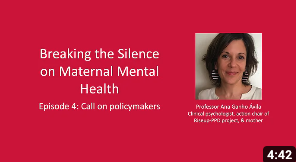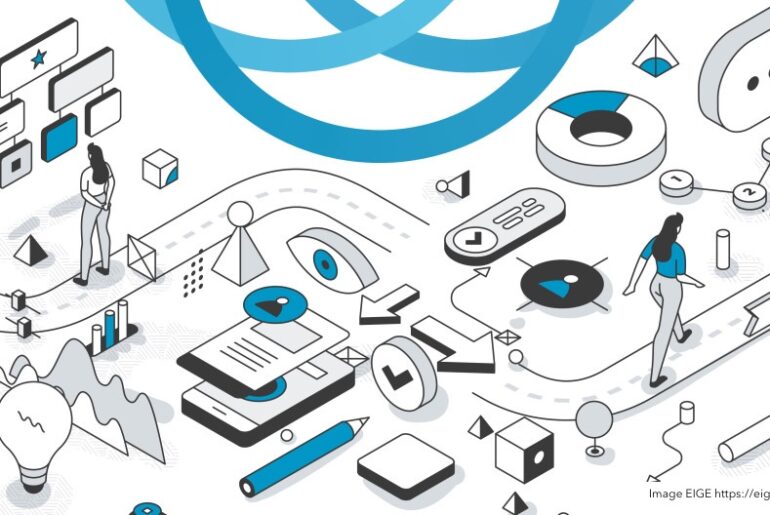Breaking the Silence on Maternal Mental Health
13.11.23

Make Mothers Matter launched a new video series on Maternal Mental Health, addressing mothers, their families and society in general. Our aim is to highlight the latest research surrounding maternal health in order to inform and support mothers and raise awareness on this important topic – because the mental health of the mother during the peripartum period is as important as her physical health.
Featuring Prof. Ana Ganho Ávila, a clinical psychologist and researcher at the University of Coimbra, Portugal, and Chair of the EU project RiseUpPPD, of which Make Mothers Matter is a partner, this first series tackles a number of issues:
- Episode 1: Why maternal mental health?
 Prof. Ganho Ávila stresses the critical need to start a dialogue around mothers, their families and communities at large and explains how mental health came to be so important to her.
Prof. Ganho Ávila stresses the critical need to start a dialogue around mothers, their families and communities at large and explains how mental health came to be so important to her.
- Episode 2: Research and new guidelines for PPD
In this episode, Prof. Ana Ganho Ávila talks about her specific research interest and endeavours relating to maternal mental health. Alarmed by a lack of resources for healthcare providers to detect and understand different clinical indicators for peripartum depression (PPD), she has been working on developing EU-wide guidelines for diagnosing and treating PPD in clinical practice within the research project Rise UpPPD. You can find the newly published guidelines here.
- Episode 3: 5 things to know about maternal mental health
The key message of this episode is: You are not alone and there is help out there. In fact, an estimated 10–20% of new mothers and 4–10% of new fathers experience poor maternal mental health, highlighting its worrying impact on society.
- Episode 4: Call on policymakers
NGOs like MMM work to support and empower mothers by influencing policies to bring about positive change. Prof. Ganho Ávila lays out actionable steps policymakers, specifically in the European context, need to take to better address maternal mental health as well as more general issues affecting mothers. The responsibility is on all of us to help push the policy agenda forward and demand change.
- Episode 5: How to support the mothers in our lives
This episode offers advice on how all of us can, and have a responsibility to, better understand maternal mental health, the common challenges of being a new mom, and to create more supportive environments for talking about it. It takes a village to raise a child and we can be part of that by unconditionally supporting mothers, be that ourselves (in practicing self-care) or others.
- Episode 6: Advice to new parents
Prof. Ganho Ávila addresses new mothers and fathers on what they should know, as they plan for a pregnancy and beyond.
Our thanks to Prof. Ganho for helping at breaking the silence and at building the village in maternal mental health.
Time Poverty and the Motherhood Penalty
Unveiling Economic and Social Injustices
09.07.24
Mothers play an essential role in families by ensuring their loved ones are nourished, educated, and healthy, but their unpaid care work often leads to economic and social injustices, known
Envisioning care as a common thread to global crises
29.07.24
UN New York - Our virtual HLPF side-event brought together experts to shed light on how the various global crises we face (in particular climate change and other environmental crises,
We call for multi-stakeholder approach to recognise and support unpaid care work
21.07.24
UN New York - Participating in the meeting of the UN Economic and Social Council (ECOSOC) on care and support systems, MMM reaffirmed the principle of co-responsibility, which should underpin








